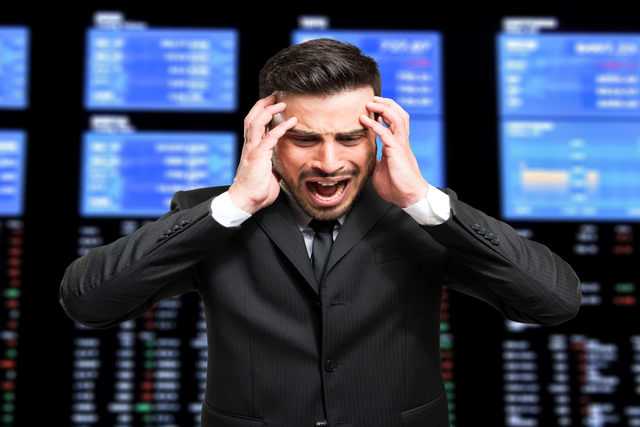 Trading stocks, options, futures, futures options and indexes are not for the faint of heart. When you trade in these markets, you are always on the precipice of making or losing money. If you are an active trader and/or investor, you will make mistakes. The key to success is how quickly you can learn from your mistakes and correct them when they happen.
Trading stocks, options, futures, futures options and indexes are not for the faint of heart. When you trade in these markets, you are always on the precipice of making or losing money. If you are an active trader and/or investor, you will make mistakes. The key to success is how quickly you can learn from your mistakes and correct them when they happen.
What is confidence?
Confidence is an individual's self-belief in their ability to perform a task. Confidence is often based on one's perception of their own abilities. External factors like admiration from others or the need for approval can be a confidence booster, but can carry the extra pressure associated with it.
How does confidence affect trading decisions?
As a trader, confidence is an integral part of trading decisions. When traders become confident in their trade, they are more likely to execute the trade and carry out the process of profit and loss. Many things can influence a trader's confidence, including, but not limited to:
1. Controlling One's Impulses
Impulse control is the ability to resist an impulse and not act on it. It can be determined by a person's ability to persist in pursuit of long-term goals, despite encountering short-term temptations and distractions. Sometimes, it may be a matter of a physical response rather than a conscious choice.
2. Experience and knowledge of the market
A trader/investor must be knowledgeable on the market he or she is trading prior to deciding what to trade or invest in. Experience facilitates spotting trends and makes educated decisions about which markets are most likely to produce a high return on investment. Knowledge of the local economy will also help identify emerging markets, which may lead to increased profits in the future.
3. Time spent on trading
There truly is no replacement for experience. The adage, "screen time and practice" is still very much a part of becoming a confident trader.
4. Maintaining confidence after trading mistakes
When trading mistakes occur, it is essential to maintain confidence in order to mitigate the consequences of such actions. We can see the need for this when traders who are emotionally fragile (pessimistic) rarely recover after a poor trade and start making more trades out of fear and worry, or they stop trading, which ultimately does nothing but exacerbates their losses. Those who feel less rattled by trading mistakes and continue acting with discipline and consistency will ultimately succeed in the long run.
In both trading and life, mistakes happen. Contemplate the causes of the errors or use them as a learning experience to avoid future mistakes. In trading, it is important to maintain confidence after all failures. This can be challenging. But if the trader’s method has a positive expectancy, it is important to maintain discipline and trust the method.